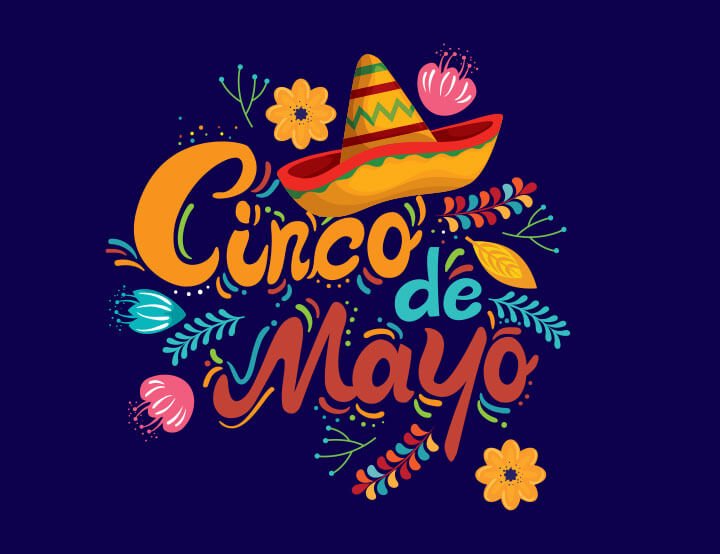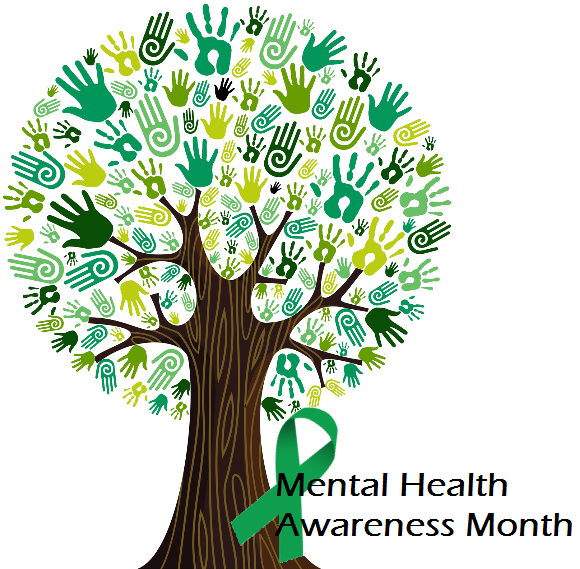APR-MAY | JEDI NEWS (Justice, Equity, Diversity, and Inclusion)
SOCIAL JUSTICE
Social justice means fair and equal treatment for everyone. This includes equal access to opportunities, human rights, and the benefits of growth regardless of ethnicity, gender, religion, sexual orientation, age, disability, or socio-economic position.
An agenda for social justice aims to eliminate discrimination and inequalities. It promotes the dignity of all people. In the world of work that means decent jobs, fair wages, labor rights, dialogue, as well as equality, and social protection for all. We recognize social justice month in February as a way of honoring those who stood for social justice throughout history.
This Policy brief YouTube video shares the origins of social justice: Is Social Justice Just? The Origins of Social Justice [POLICYbrief] - YouTube (Andrea May)
SECOND CHANCE MONTH
Each April, the U.S. Department of Justice's Office of Justice Programs celebrates Second Chance Month, recognizing the importance of helping individuals, communities, and agencies across the country appreciate their role in supporting the safe and successful reentry of millions of people returning from incarceration each year. Second Chance Month aims to inform and highlight the many opportunities for state, local, and tribal governments and community-based service providers to build meaningful second chances for our returning community members. More info here. (Donna Marston)
MAY 5 | CINCO DE MAYO
Alright folks, it’s Cinco de Mayo - May 5th – the day everyone gets a free pass to become a Mexican super-fan! Get ready to don a sombrero, learn some salsa moves, or join a margarita binging marathon. Meanwhile, do you know these two spicy secrets behind this fiesta?
Contrary to popular belief, Cinco de Mayo is not Mexico’s Independence Day. May 5, 1862, was the day Mexico defeated France at the Battle of Puebla. Mexico’s actual Independence Day is on September 16.
Cinco de Mayo is no longer just a Mexican thing – it’s gone global. Celebrations take place in far away places such as Osaka, Japan, and Lagos, Nigeria. Isn’t it Interesting to know that Cinco de Mayo is more widely celebrated in Los Angeles than in Mexico itself?!
So my amigos, join me on a taco break, sip your tequila, and do a little cha-cha – Cinco de Mayo is all about celebrating unity, resilience, and success. !Salud! (Source: 7 Things You May Not Know About Cinco de Mayo, history.com) (George Chege)
MAY 17 | INTERNATIONAL DAY AGAINST HOMOPHOBIA, TRANSPHOBIA, AND BIPHOBIA
The International Day Against Homophobia, Biphobia and Transphobia (IDAHOBIT) is observed on May 17 and aims to coordinate international events that raise awareness of LGBTQIA+ rights violations and stimulate interest in LGBTQIA+ rights work worldwide. The date of May 17 was specifically chosen to commemorate the World Health Organization’s decision in 1990 to declassify homosexuality as a mental disorder. In 2021, United States President Joe Biden used IDAHOBIT to highlight efforts to alleviate LGBTQIA+ discrimination and to call on Congress to pass the Equality Act, which protects us from discrimination, based on sexual orientation or gender identity.
The theme for 2024’s IDAHOBIT is “Together Always: United in Diversity.” More info here. (Wendy Leblanc)
MAY 21 | WORLD DAY FOR CULTURAL DIVERSITY
Every year on May 21, UNESCO leads the celebration of World Day for Cultural Diversity for Dialogue and Development highlighting not only the richness of the world’s cultures, but also the essential role of intercultural dialogue for achieving peace and sustainable development.
The “Declaration of Culture” defines a set of cultural rights that need to be taken into account in public policies. These range from the social and economic rights of artists to artistic freedom, the right of indigenous communities to safeguard their ancestral knowledge, and the protection and promotion of cultural and natural heritage.
It also calls for substantial regulation of the digital sector, notably of the major platforms, for the benefit of online cultural diversity, artists’ intellectual property rights, and fair access to content for all. (Christine McKenna)
MAY 27 | MEMORIAL DAY
Memorial Day is always commemorated in the US on the last Monday in May. This year, Memorial Day falls on May 27. Originally, Memorial Day was a day to remember Union soldiers who died in the Civil War. Following WWI, Memorial Day remembrance expanded to include those who died in any military action or war. Illinois Senator John Alexander Logan, a former Union General from 1868, used his position as commander-in-chief of the Grand Army of the Republic, to issue a proclamation for a national “Decoration Day” to be observed on May 30 of that year by decorating tombs of Union soldiers. The name “Memorial Day” became more common after WWII, and in 1967 was declared the official name by federal law.
The intention of Memorial Day is to honor family and friends that lost their lives while serving their country. It is often a solemn day of remembrance, so it may be insensitive to wish someone “Happy Memorial Day” if they’re grieving the loss of loved ones. Instead you might say, “I hope your Memorial Day is meaningful.” Thanking loved ones for their service is also a way to show honor to the military community. For more information on Memorial Day history please visit https://www.archives.gov/news/topics/memorial-day (Laina Reavis)
MAY | MENTAL HEALTH MONTH
May is Mental Health Awareness Month. Established in 1949, this day aims to increase awareness of the importance of mental health and wellness in Americans’ lives, as approximately 20% of Americans are living with a diagnosable mental illness. Mental Health Awareness Month aims to reduce stigma and to celebrate recovery from mental illness. Green is the national color of mental health acceptance, as it represents hope, strength, support, and encouragement for people who live with mental illness. You can show support by wearing something green at least once a week throughout the month of May. To learn more, click here: Mental Health Month | NAMI: National Alliance on Mental Illness. (Lauren Meehan)
MAY | National ALS AWARENESS MONTH
May is National ALS Awareness Month. ALS stands for amyotrophic lateral sclerosis. ALS is also known as Lou Gehrig's Disease, which was named after the baseball player who was diagnosed with it. During the month, people can learn about ALS, including its symptoms, diagnosis, treatment options, and how to save on medications. ALS is a nervous system disease that affects nerve cells in the brain and spinal cord and causes loss of muscle control including the muscles needed to move, eat, speak and breathe. The disease gets worse over time, unfortunately, and the exact cause of this debilitating disease is still unknown and there is no cure for this fatal disease.
For more information on symptoms and causes, diagnosis and treatment, and doctors who specialize in ALS, please visit the Mayo Clinic at https://www.mayoclinic.org/diseases-conditions/amyotrophic-lateral-sclerosis/symptoms-causes/syc-20354022
There is a big need for funding for research, but not everyone has the capability to help financially. If you visit www.als.org, there is a wealth of information in regard to ALS, including ways to volunteer, blogs of what is happening around the world, and how to get involved locally. If you are interested in volunteering to help the ALS Community, here are six ways to get involved:
Volunteer at Events
Help Plan and Coordinate Events
Become an Advocate
Provide Care and Support to People Living with ALS
Help Raise Awareness
Help with a Special Project
For more information, please visit https://www.als.org/blog/six-ways-get-involved-volunteering-help-als-community where you can find links to volunteer forms and other weekly blogs! (Laina Reavis)
MAY | ASIAN AND PACIFIC ISLANDER HERITAGE MONTH
Asian American and Pacific Islander (AAPI) Heritage Month is celebrated in May. The theme for 2024 is "Advancing Leaders Through Innovation.” This theme is the conclusion of the 2021–2024 series that highlights the nation's efforts in "Advancing Leaders.” Past themes included: 2021-“Advancing Leaders Through Purpose-Driven Service”, 2022-“Advancing Leaders Through Collaboration”, and 2023-“Advancing Leaders Through Opportunity.”
Asian Americans and Pacific Islanders have a rich heritage that spans thousands of years. They have shaped the history of the United States and have beautiful traditions. A popular tradition, the tradition of celebrating the blooming of cherry trees in Japan, is centuries old. In Japan, the flowering cherry tree, or "Sakura," is an important flowering plant. The beauty of the cherry blossom is a symbol with great meaning in Japanese culture. In Washington DC, the planting of cherry trees originated in 1912 as a gift of friendship to the People of the United States from the People of Japan. We have been celebrating cherry trees - blooming in solidarity - for over a hundred years!
The Library of Congress, National Archives and Records Administration, National Endowment for the Humanities, National Gallery of Art, National Park Service, Smithsonian Institution and United States Holocaust Memorial Museum are paying tribute to generations of Asian and Pacific Islanders who have enriched America's history. AAPI individuals have helped build and shape America for centuries, often in the face of racial and cultural prejudice. Some notable areas include healthcare and activism. AAPI healthcare professionals have made momentous contributions to the field of medicine, such as Dr. David Ho's work on AIDS and Dr. Helen B. Taussig's innovative research in pediatric cardiology. AAPI activists have worked to combat stereotyping and anti-AANHPI racism, create safe spaces for their communities by being inclusive and respectful, an ongoing process that requires all of us to be collectively involved and responsible. Asian Americans and Pacific Islanders have also played an important role in American civil rights and civics history.
For more information on the history, culture, events and more: https://fapac.org/ and https://www.nps.gov/subjects/aapiheritage/index.htm (Laina Reavis)
MAY | JEWISH AMERICAN HERITAGE MONTH
Jewish American Heritage Month (JAHM) is an annual recognition and celebration of American Jews' achievements and contributions to the United States of America during the month of May. President George W. Bush first proclaimed the month on April 20, 2006, as a result of cooperation with Sen. Arlen Specter (R-PA), as well as the Jewish Museum of Florida and the South Florida Jewish Community. Since then, annual proclamations have been made by Presidents Bush, Obama, Trump, and Biden.
In 2020 the National Museum of American Jewish History in Philadelphia repositioned Jewish American Heritage Month to empower communities across the country to celebrate the inspiring history of Jewish people in America; educate diverse public audiences about Jewish culture; and spark crucial conversations about the American Jewish present and future. More info: https://en.wikipedia.org/wiki/Jewish_American_Heritage_Month (Christine McKenna)






